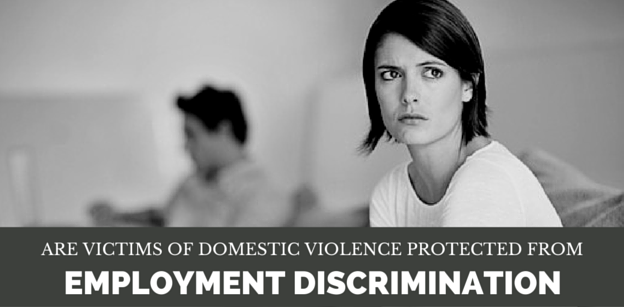Texas is an at-will employment state, and there is currently no specific State or federal law which prohibits employment discrimination based on domestic violence. There are domestic and sexual violence employment rights laws in 16 states, and these laws, like other anti-discrimination laws, prohibit certain employers from discriminating or retaliating against employees who have been victims of domestic violence or sexual assault. In addition to these state laws that prohibit discrimination, there are a number of other states that have enacted more limited protections for victims of domestic violence. 32 states have passed laws that protect victims of crimes, including domestic violence and sexual assault, from being fired or otherwise disciplined for taking time off from work to participate in a related criminal proceeding. While these laws are still relatively limited in their scope, Texas has neither type of law in place.
In 2013, a bill was introduced in the Texas House of Representatives that would have allowed crime victims and parents/guardians of crime victims the right to take time off from work to attend court proceedings related to the crime. However, like many other proposed bills before it, this bill died in committee.
On the federal level, the Security and Financial Empowerment (SAFE) Act has been repeatedly introduced by Congresswoman Lucille Royball-Allard (D-Cal), but has failed to pass more than a dozen times. The SAFE Act would have provided certain protections for survivors of domestic violence and sexual assault such as:
- up to 30 days off from work during any 12-month period to receive medical attention, seek legal assistance, and get help with safety planning;
- protection from termination because they were harassed by their abuser or participated in the criminal or civil justice process, sought modifications at work to increase workplace safety in response to domestic or sexual violence, or were subjected to exploitation through revenge pornography; and
- employers would be required to make reasonable safety precautions or job-related modifications if requested.
So what Protections are there in Texas?
Under Chapter 21 of the Texas Labor Code and Title VII of the Civil Rights Act of 1964, employees are protected from disparate treatment based on sex. While these laws do not explicitly prohibit discrimination based on domestic violence or sexual assault, they may still provide for legal recourse in certain scenarios. For example, there may be a legal claim if the employers actions are related to the employee’s gender in connection with the domestic violence (e.g.):
- a male employee is given leave, but a female employee is not or
- a male employee is fired after informing his employer that he was a victim of domestic violence because the employer believes men should be able to protect themselves
Victims of domestic violence and sexual assault in Texas may also have certain legal protections under the Americans with Disabilities Act (ADA) and Family and Medical Leave Act (FMLA). A victim of domestic violence or sexual assault may have real or perceived physical or mental impairments that are protected under the ADA. Employers would therefore be required to provide a reasonable accommodation based on this disability, and cannot terminate the employee because of the disability or perceived disability. Likewise, an employee may be eligible for up to 12 weeks of job protected leave under the FMLA for his/her own health condition or to care for a spouse, child, or parent who suffers from a serious health condition that is related to an incident of domestic violence or sexual assault.
Clearly, there is a lot more that the Texas Legislature and Congress could be doing to protect victims of domestic violence and sexual assault from employment discrimination. The limited protections that are currently in place do not do enough to provide these individuals with the protection they need. However, if you believe that you have been subjected to employment discrimination because you are a victim of domestic violence or sexual assault, you should contact a knowledgeable employment attorney in your area to discuss your legal rights. Additionally, you can contact the office of your Representative or Senator to encourage them to pass laws that provide these much needed protections.









